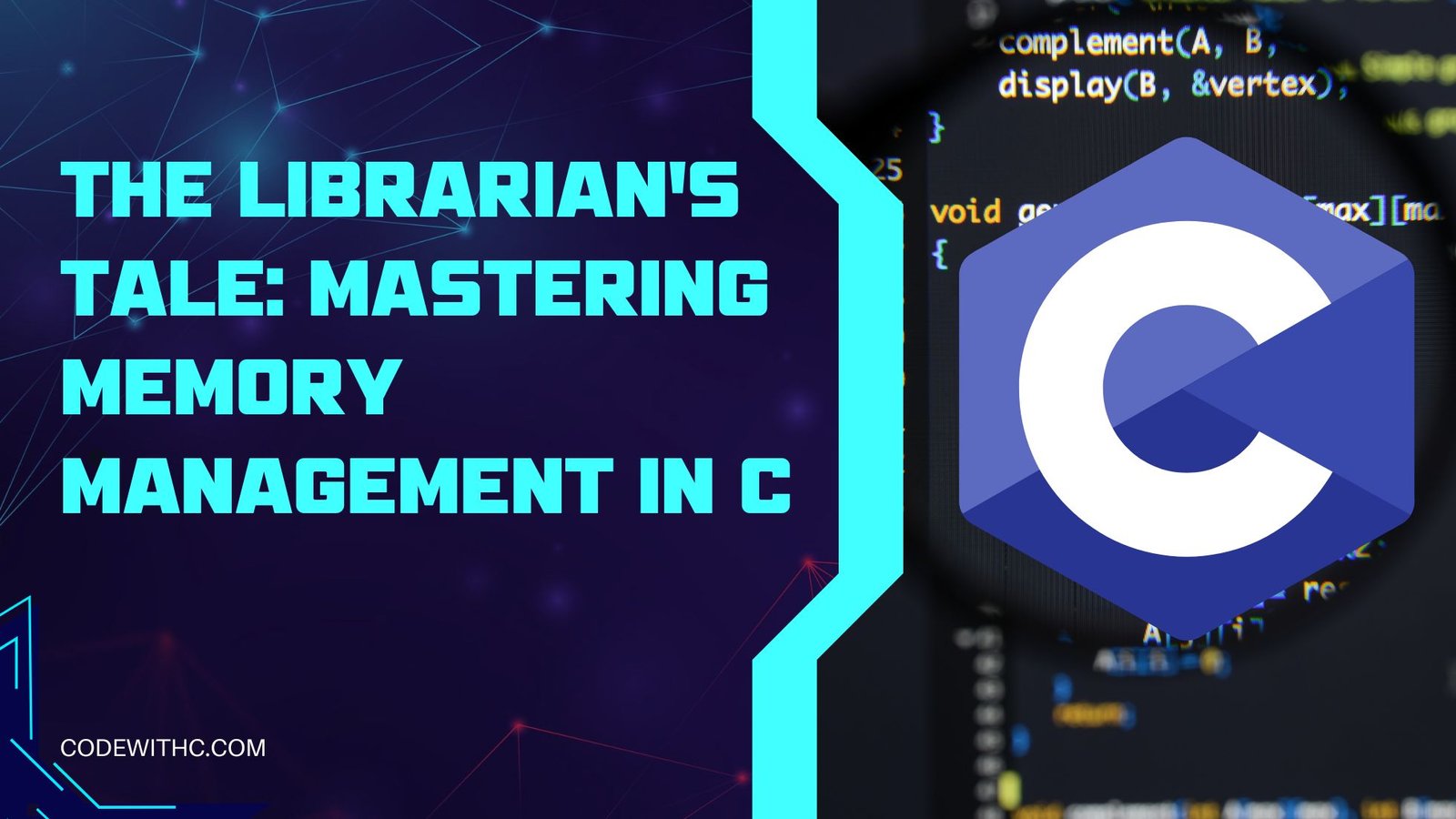Hello, fellow memory librarians! ? Just like a library needs meticulous organization to function smoothly, our C programs need precise memory management. Let’s dust off the shelves and explore this essential aspect of C programming!
The Bookshelves: Understanding Memory in C
In C, memory is like a grand library with different sections. We have the Stack, where local variables are neatly arranged, and the Heap, a vast space where we can dynamically allocate and deallocate memory as needed.
Allocating a New Shelf: malloc and calloc
To create new space on the Heap (our library), we use functions like malloc and calloc.
int *arr = (int *) malloc(5 * sizeof(int));
Code Explanation:
mallocstands for ‘memory allocation’. Here, we’re requesting space for 5 integers.- This memory is now our responsibility. Think of it as a new shelf in our library.
Returning Books: Freeing Memory
When a book (or block of memory) is no longer needed, it must be returned to free up space.
free(arr);
Code Explanation:
free(arr)tells the system that we are done with this memory. It’s akin to removing a shelf that’s no longer needed.
The Librarian’s Challenge: Memory Leaks and Dangling Pointers
In our library, misplacing a book or forgetting to return one creates chaos. In C, this translates to memory leaks and dangling pointers.
Hunting Down the Lost Books: Avoiding Memory Leaks
int *new_arr = (int *) realloc(arr, 10 * sizeof(int));
if (new_arr != NULL) {
arr = new_arr;
}
Code Explanation:
reallocattempts to resize a block of memory. If successful, it returns a pointer to the new block (which may be in a different location).- We check if
new_arris not NULL before proceeding, ensuring that the memory was successfully reallocated.
The Dewey Decimal System: Memory Alignment and Padding
Just as books are systematically arranged, memory in C is organized efficiently, often requiring alignment and padding for optimal performance.
The Night Shift: Garbage Collection in C
C doesn’t have a garbage collector like some other languages, so memory management is entirely in the hands of us, the programmers (or librarians, in our analogy).
Summing Up: The Craft of Memory Management
As we close the library doors on this chapter, we’re reminded that memory management in C is an art and a responsibility. It’s a dance of allocating and freeing, a careful act that, when mastered, leads to efficient and error-free programs.
